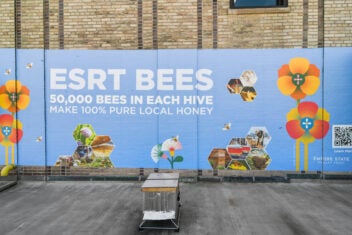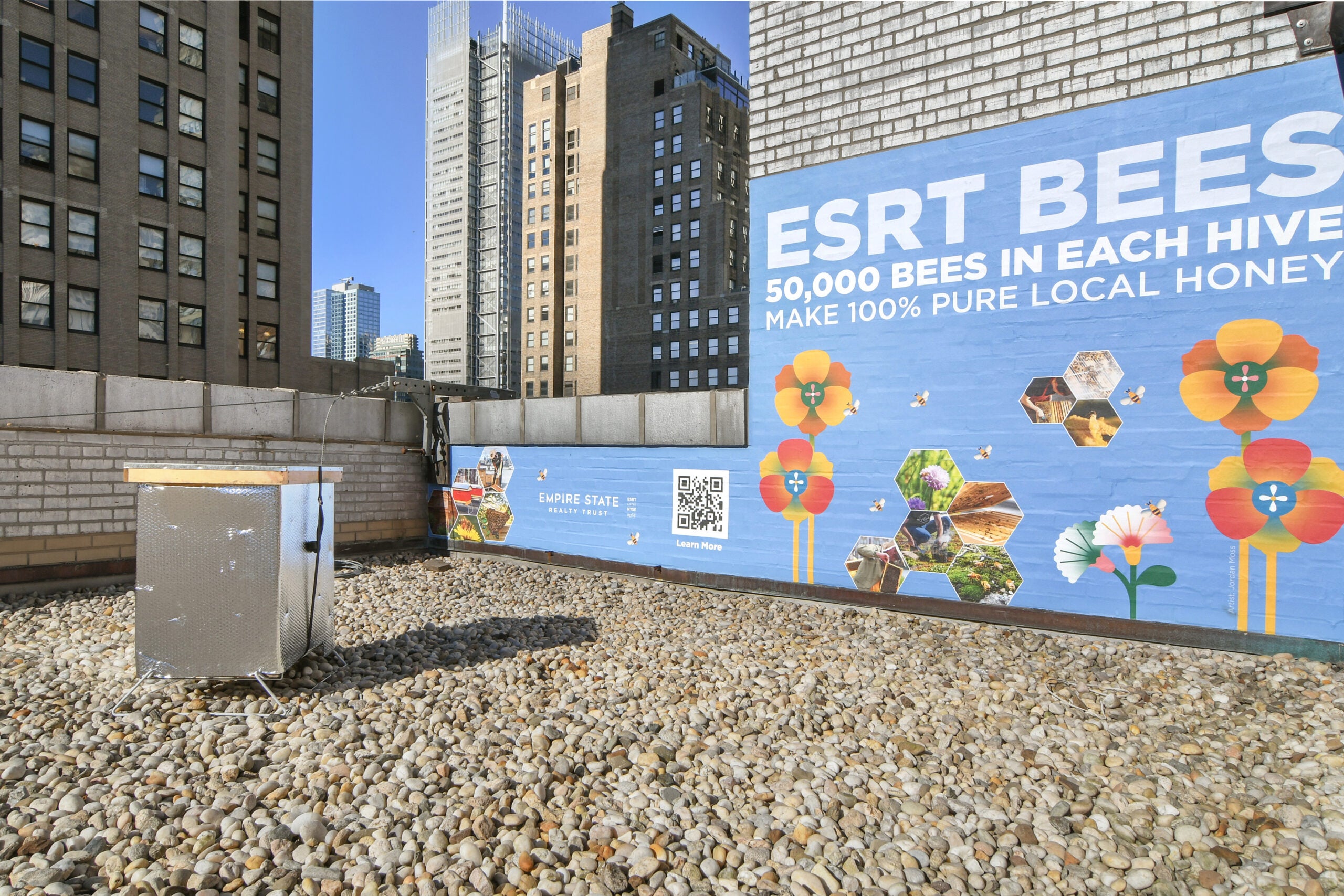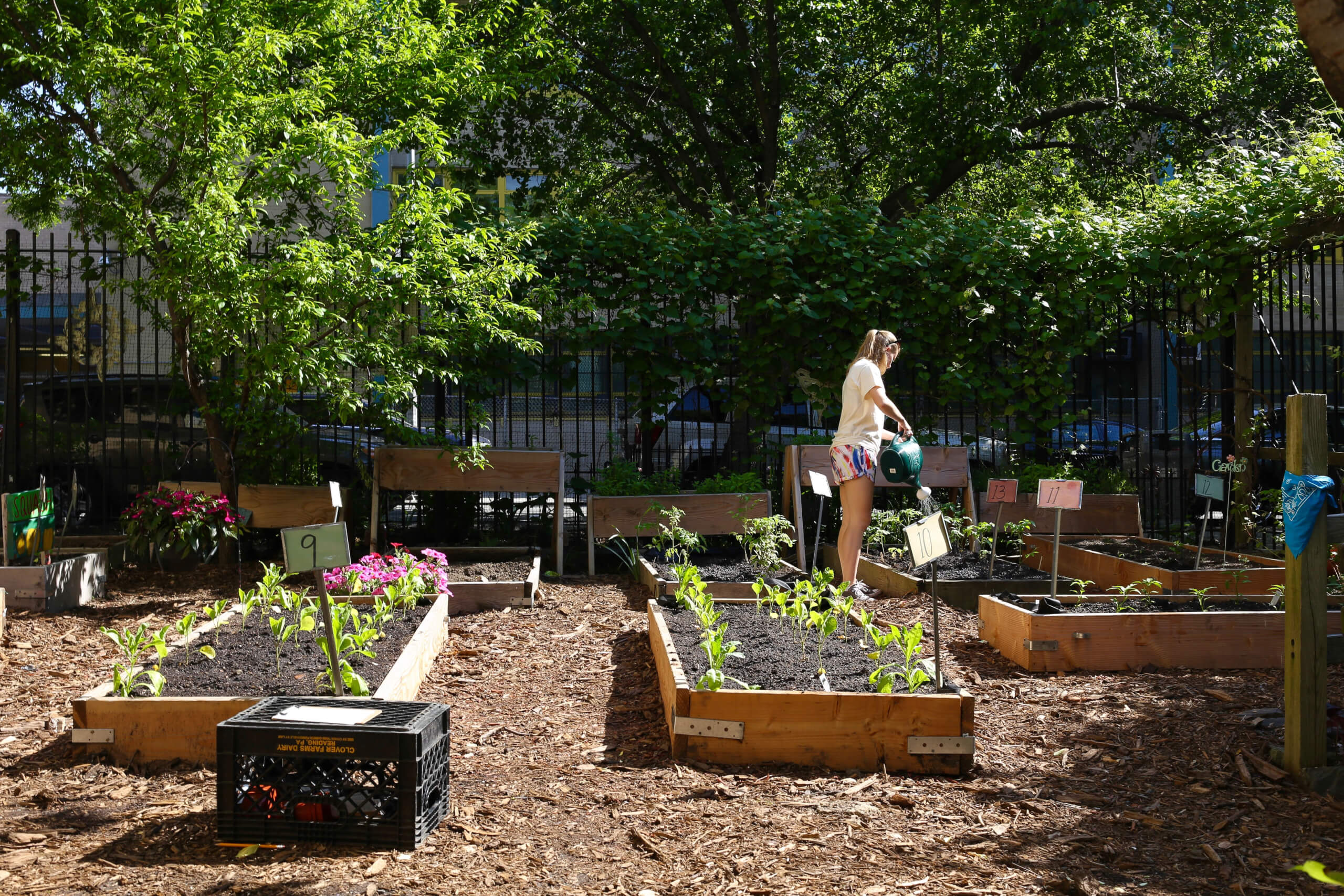
Sustainability
Composting 101: Tips for Sustainable Waste Disposal | ESRT
October 28, 2024
As sustainability becomes increasingly critical, businesses have a pivotal role to foster eco-friendly practices. Empire State Realty Trust is committed to waste reduction and has recently rolled out a full-scale composting program throughout its portfolio. Composting not only benefits the environment but also helps businesses reduce waste and cut costs.
Learn all about the composting process in this comprehensive guide, from the initial setup to troubleshooting common problems.
Why Should My Business Compost?
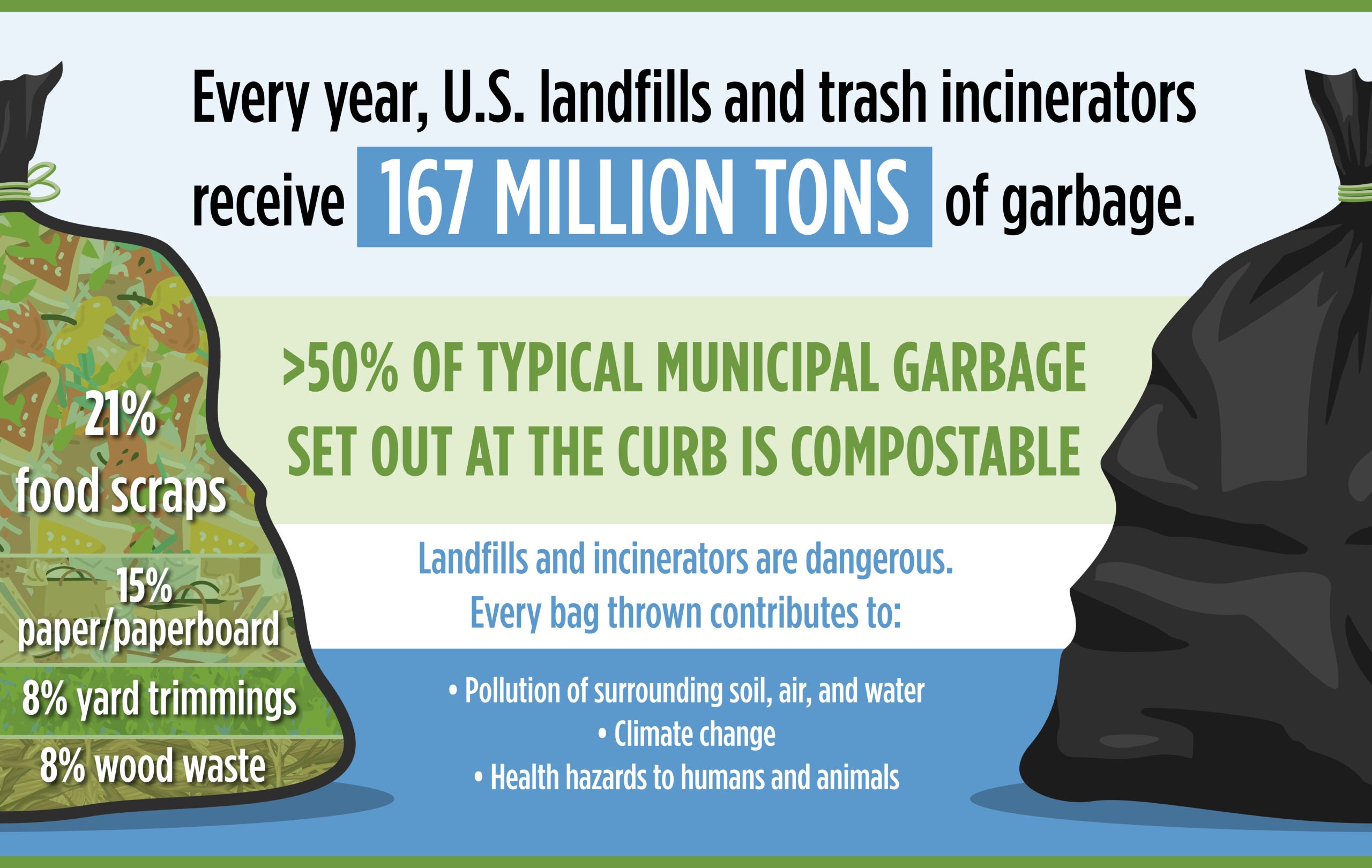
Composting is not just for households; it is equally crucial for businesses. Compostable organic materials make up over a third of all waste generated in the commercial sector. ESRT’s composing program includes complimentary compostable liners, signage, and education with daily pickups of organic waste directly from tenant spaces. This practice doesn’t just eliminate the amount of waste that ends up in landfills, it also helps the New York City grid!
This sustainable practice has numerous benefits which include:
- Environmental Benefits: Composting converts organic waste into a nutrient-rich soil amendment to help reduce methane emissions and mitigate climate change. It enhances soil fertility, promotes biodiversity, and lessens the need for chemical fertilizers. Organic material is also processed anaerobically in NYC as a source of renewable energy which is returned to the natural gas grid as a fossil fuel alternative.
- Reduced Landfill Waste: Landfills are harmful to the environment due to the release of methane gas, contamination of soil and groundwater nearby, and loss of natural habitats for wildlife. Methane gas is a powerful greenhouse gas that accounts for as much as 20% of the global warming created by all greenhouse gases. Emissions from landfills pose a threat to the health of those who live and work around landfills and bring hazards such as odor, smoke, noise, bugs, and water supply contamination. By composting, businesses can significantly cut the amount of waste sent to landfills and reduce methane production.
Where to Start with Composting
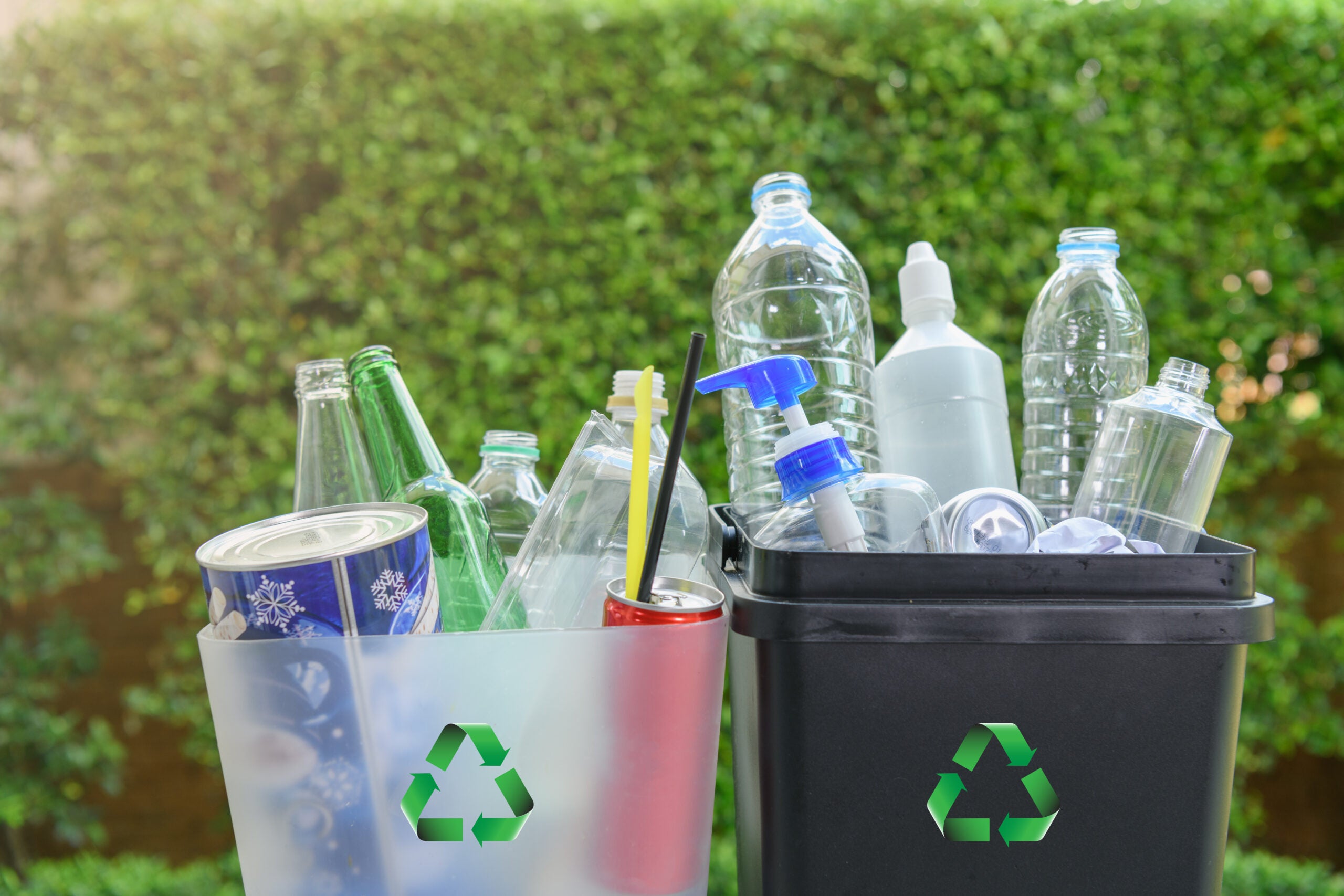
Composting helps businesses reduce their environmental footprint and creates nutrient-rich compost for gardens and landscaping.
Here are essential tips to get started:
- Assess Your Business Waste: Evaluate the types and volume of organic waste your business generates. Conduct a waste audit to identify sources like food scraps and coffee grounds. This helps determine the scale of your composting operation and the necessary resources. Identify opportunities for food waste reduction before you implement composting.
- Understand Acceptable Materials: Anything that was once alive can be composted. Meat, dairy, bones, tea bags, coffee grounds, prepared foods, grains, fruit and vegetable scraps, and food soiled paper are all accepted in the compost bin. Avoid plastics, food containers, metals, and glass in the compost bin. Educate employees on compostable materials.
- Choose the Right Container: Select a composting container that suits your business needs, as you consider space and waste volume. Consider a container with a lid to limit smells.
- Implement Compost Program: Add clearly labeled compost bins at existing waste disposal stations, co-located with trash and recycling bins. Pantries and other areas where food is served are great places to implement compost bins to capture food waste. Post signage in common areas at eye-level that lists acceptable materials for each waste stream. NYC-compliant signage is posted within ESRT’s Tenant Sustainability Toolkit for download.
- Contact Property Management: Sign your space up for daily organic composting pickup by reaching out to your building’s property management team. Compostable Liners and signage are complimentary.
Regularly monitor and adjust practices, prioritize reduction of organic waste, and celebrate the positive environmental impact.
How to Educate Employees on Composting
For effective composting in a business setting, educating employees on its benefits and techniques is essential. Training programs, awareness campaigns, and incentives can foster a composting culture.
- Training Programs and Workshops: Provide sessions that cover composting basics like compostable materials and system management with ESRT’s expert sustainability team. Integrate waste-related training to new staff onboarding to solidify sustainable waste management into the company culture.
- Promote Awareness and Participation: Use communication channels like email newsletters, posters, or intranet platforms to educate employees on composting benefits and tips. Create a sense of community and shared responsibility to encourage participation.
- Offer Incentives: Implement reward systems to motivate employees. Recognize consistent participation with incentives like gift cards, extra vacation days, or company-wide recognition. This fosters a positive environment that promotes sustainability.
Odors and Pests: Not a Worry!
Many may be worried that organic composting could bring new odors and pests into space, however it is important to note composting does not generate new waste; it is just separated to a new container. If there are no current issues with pests, there likely won’t be when a composting program is implemented. A lidded container is recommended for both smell and pest reduction. Step cans are preferred because individuals tend to underuse containers if they need to remove a lid with their hands. Additionally, step cans can be equipped with carbon filters and other odor control pods.
Learn more about Sustainability at ESRT!
Sustainability
Flight to Quality
Fully modernized, energy efficient buildings that focus on providing our tenants with top tier amenities and a healthy environment at a lower price than the competition


